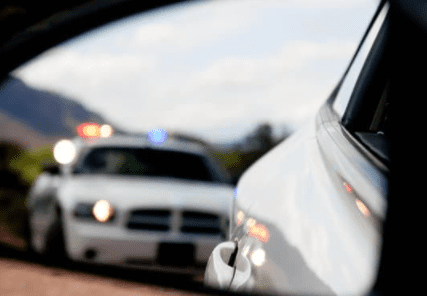FAQ – Israeli Traffic Law
This article, FAQ – Israeli Traffic Law, addresses many issues relevant to anyone that has been involved in a traffic accident in Israel or who has been accused of a traffic violation. It is composed of three sections: questions concerning traffic accidents, questions concerning traffic violations and interactions with the police, and questions concerning driving license offenses.
For tips on how to choose the best Israeli traffic lawyer for your case, see our article on the topic. 
Questions concerning Traffic Accidents:
What should I do if I have been involved in a traffic accident in Israel?
If you have been involved in a traffic accident you should first call medical emergency services (101) in case anyone has been injured. You should also make a note of any pain you may be feeling as it may affect the compensation you are entitled to. The second thing you should do is carefully document the scene of the accident and exchange information with the other driver. Third, you should call the police (100) to have them formally document the scene of the accident. Finally, you should immediately contact an Israeli lawyer who specializes in Israeli traffic law.
Regardless of whether you think you were responsible for the accident or not, we strongly recommend that you do not accept any blame for the accident in your conversations that day. Instead, allow a lawyer to represent your case. For more information on what to do in the case of an accident, please see our article: Car Accident Legal Help in Israel.
Why should I contact a lawyer if I have been involved in a traffic accident?
One of the first things you should do after becoming involved in an accident, other than calling the relevant emergency services, is contacting an Israeli lawyer who specializes in Israeli traffic law. The Israeli traffic lawyer will be able to advise you on how to behave and what to do next. In a situation where you may face prosecution, they will be able to help ensure your interests and defend your case. Likewise, in a situation where you are the victim of another driver’s negligence, they will be able to help ensure you receive the compensation you deserve. For more information on legal counsel in the case of a traffic accident, please see our article: Car Accident – Call a Lawyer in Israel.
What should I do if the accident occurred during my work hours?
If you have been involved in a traffic accident in Israel while working, follow the same guidelines as above: call for medical assistance if necessary, document everything on the scene, exchange details about the other vehicle’s driver, call the police to document the accident, and make sure to avoid accepting blame for the accident. Additionally, since the accident occurred while you were working, you will need to file a claim with the National Insurance Agency (Bituach Leumi). We also advise you to contact an experienced traffic lawyer to represent your interests. For more information on what to do in the case of a traffic accident during work hours, please see our article: Traffic Accident while Working in Israel.
What should I do if I have been the victim of a hit-and-run accident in Israel?
If you have been involved in a traffic accident in Israel but the identity of the person who caused the accident is unknown because they fled the scene of the crash, you can still be compensated for the damages you have experienced through a special governmental fund called Karnit that has been set up for this purpose. Immediately after the accident, you should call an ambulance if needed, document everything at the scene of the accident, write down everything you know about the vehicle that caused the crash, make a list of witnesses who saw the accident, and file a complaint in person at a police station. For more information on what to do in the case of a hit-and-run accident, please see our article: Hit and Run Legal Help in Israel.
What compensation am I entitled to if I have been injured in a car accident?
In Israel, every vehicle owner is required to have mandatory car insurance (bituach chova) for instances in which their vehicle was involved in a traffic accident. If you suffered an injury from a traffic accident, you should sue the offending party’s insurance company for compensation. The compensation you receive will be determined according to the severity of the injury, how much the injury has impeded your ability to work, how many years you have left before retirement, your income prior to the injury, etc. For more information on how to sue for compensation in the case of an injury caused by a car accident, please see our article: Injured in Car Accident in Israel.
How can I receive compensation for damages done to my vehicle in a car accident in Israel?
If you have been the victim of a car accident caused by another driver, and your property has been damaged as a result, you should file a claim with the offending driver’s insurance company or, if they do not have a relevant insurance plan, against the offending driver directly. As a norm, the insurance companies will resolve the issue amongst themselves. However, in cases of an unresolved dispute, the case may be brought to the Traffic Offenses Court. For more information on compensation claims for property damage in a vehicular accident, please see our article: Compensation for Property Damage for a Car Accident in Israel.
Questions Concerning Traffic Violations and Interactions with the Police in Israeli Traffic Law:

What are the consequences of accumulating multiple traffic citations in Israel?
In Israel, it is important to avoid receiving multiple traffic tickets in a short period of time. This is because each violation will not be treated in isolation, but rather they will have a compounding effect on each other due to the traffic violation point system used in Israel. Each traffic violation will cause between 2 to 10 points to be counted against your record. Once you accumulate 12 points you will be required to take a “proper driving course” with a final exam, which you must pass. If you accumulate at least 36 points, your driver’s license will be suspended for a period of time. For more information on the violation point system, please see our article: Accumulating Multiple Traffic Citations in Israel.
What should I do if I have been accused of running a red light?
In most cases in which a driver has been accused of driving through a red light, the alleged offense is caught and recorded using a system of automated cameras which are normally triggered by a floor panel on the road. Disregarding a red traffic light in Israel is usually punished with a 1,500 NIS fine and 10 traffic violation points (the maximum from a single violation). Accumulating too many points can trigger a requirement to take a driving course and even the suspension of one’s license. If you have been accused of running a red light, we suggest that you request a trial since an experienced traffic lawyer can sometimes help reduce the penalty or even have the case entirely dismissed, especially if they can demonstrate an irregularity in the traffic light or automated camera. For more information on the topic, please see our article: Running a Red Light in Israel.
What is the speed limit in Israel?
Israeli traffic law indicates that the speed limit for private vehicles is 50 KMpH on city roads, 80 KMpH on non-city roads, and 110 KMpH on highways unless stated otherwise by traffic signage. Regardless of the formal speed limit, every driver must also take into account the weather conditions and circumstances on the road to ensure that they are driving at a reasonable speed which allows them to maintain full control of the vehicle and not endanger anyone. For more information on speed limits, please see our article: Speed Violations in Israel.
What is the penalty for speeding in Israel?
The penalty for breaking the speed limit depends on whether you were speeding on an urban road or a non-city road and on how much faster than the speed limit you were driving. The penalty ranges from a 250 NIS fine (if you were speeding less than 20 KMpH above the speed limit on an urban road or less than 25 KMpH above the speed limit on a non-city road) to a 1,500 NIS fine, 10 traffic violation points, and an immediate administrative suspension of your license (if you were speeding more than 50 KMpH on a non-city road or more than 40 KMpH on an urban road). For more detailed information on the prescribed penalties for speeding, please see our article: Speed Violations in Israel.
How are speeding violations detected?
The Israel police employ several different technologies in order to detect drivers committing speeding violations: 1) fixed cameras at intersections and publicly known locations; 2) portable cameras that are held by the police officer; 3) a radar device known as the “dvora” (or: BEE III); 4) hand-held laser speed guns. However, all of these devices have limitations and very strict use protocols, and therefore it is not unheard of for evidence from these devices to be dismissed by the courts if the defense attorney can demonstrate an impropriety or inconsistency in the way the device was used. For more information on the different ways speeding is detected and the limitations of these methods, please see our article: Speed Violations in Israel.
Can I appeal a speeding ticket?
In Israel, you can receive a traffic citation (also known as a “ticket”) either from a police officer who pulled you over, or a citation might be mailed to your home address if a stationary camera detected your violation. In many cases, the violation will be penalized with a fine, and traffic violation points against your record, but you will not always be required to appear before a court. If you would like to appeal the ticket, you must request a court trial instead of paying the fine. During your trial, your defense attorney may attempt to either prove that the evidence against you is insufficient and unreliable or demonstrate that there were extenuating circumstances that merit a lesser penalty. For more information on how to appeal a traffic citation, please see our article: Appeal a Speeding Ticket in Israel.
What should I do if I have been pulled over for a traffic violation?
If you are ever in a situation where the police have pulled you over and accused you of committing a traffic violation, it is important for you to remember the following things: 1) The police officer will write down everything you say verbatim. You should therefore be very calculated with your words. Be respectful but do not offer any information that can incriminate you. 2) You should never confess to any wrongdoing. If the police ask you if you know why you have been pulled over, you should turn the question back to them. 3) If possible, discreetly record your entire interaction with the police. If the officer does not adhere perfectly to police guidelines, this can be used in your favor at court. For more information on what to do if pulled over, please see our article: Important Tips If Caught Speeding in Israel.
What should I do if I have been pulled over for drunk driving in Israel?
If you are pulled over by a police officer for suspected drunk driving, we strongly recommend that you comply with all their requests but also try to discreetly record their conduct throughout the entire process. We recommend that you call a lawyer immediately if you have been caught driving while drunk since the standard punishment for this offense is a two-year suspension of one’s driver’s license. However, a lawyer may be able to reduce this sentence. For more information on what you should do if you have been caught driving while intoxicated, please see our article: What to Do if Caught Drunk Driving in Israel.
What kind of tests can an Israeli police officer administer if they suspect someone to be driving while drunk?
A police officer is entitled to conduct several types of tests on a driver whom they suspect to be intoxicated in order to ascertain their sobriety. These include performance tests like asking you to walk in a straight line or to stand still with your eyes closed, as well as alcohol content tests, such as a breathalyzer or a blood test. The most commonly used method is the breathalyzer. If you are pulled over by an officer, make sure to comply with all their requests, but take note of their conduct. For more information on what the police may ask you to do if they suspect that you have been driving while intoxicated, please see our article: Assessing Drunk Drivers in Israel.
What are the consequences of refusing an inebriation test in Israel?
If a police officer in Israel pulls you over because they suspect you are inebriated, we strongly implore you to comply with their request that you take a sobriety test. Police officers in Israel cannot physically force you to comply; however, refusing to take the test is a serious traffic violation with a maximum sentence of one-year imprisonment or a 10,000 NIS fine. If you have a valid medical reason to not use a breathalyzer, we advise you to contact a lawyer as soon as possible to make that case on your behalf. For more information on the consequences of refusing a sobriety test in Israel, please see our article: Refusing Inebriation Test in Israel.
What should I do if I have been summoned to a police investigation on a traffic violation or accident?
If you have been summoned to appear at a police station, it is important for you to clarify whether you are being summoned as a witness or as a suspect. When summoned as a suspect, make sure you know exactly what violation you are being accused of. When summoned as a witness, there is no need to prepare ahead of time or to hire a lawyer, but if you are a suspect, it is very important that you seek legal counsel. Bear in mind that in Israel you have the right to remain silent; however, your silence can be used as evidence against you in court. Your lawyer will be able to advise you when it is best for you to remain silent and when you should candidly answer the investigator’s questions. For more information on how to handle such a situation, please see our article: Tips If Summoned to an Israeli Traffic Violation Police Investigation.
How does the law in Israel treat driving after consuming marijuana?
Driving under the influence of cannabis (or any other illegal drug in Israel) is treated even more harshly than driving under the influence of alcohol. The police will usually suspend your license for 30 days. Then, if a court convicts you of the offense, your license will be suspended for two years. Because THC and other cannabinoids can linger in a person’s body long after the drug ceases to impair your ability to drive, it is possible for you to be convicted of a drug-related DUI even if a long period of time has passed between the consumption of the drug and driving. For more information, please see our article: Driving after Using Cannabis in Israel.
Is there a difference between driving after using marijuana illegally to driving after legally consuming medical marijuana?
In Israel, there is a big difference in legal enforcement between driving under the influence of illegal recreational marijuana and legal medical marijuana. Because the state recognizes that cannabinoids continue to persist in the user’s body even after the effect of the drug has waned, anyone who has a license to consume cannabis for medicinal purposes cannot be convicted of driving under the influence merely because these substances were found in their saliva or urine. Nonetheless, it is still illegal and inadvisable to drive while actively under the influence of marijuana. For more information, please see our article: Driving after Using Cannabis in Israel.
Questions Concerning Driving License Offenses:

What is the penalty for driving without a proper license in Israel?
There are many different types of driving license offenses in Israeli traffic law, but most fall under these five broad categories, listed here from least to most severe: 1) Driving with an expired license; 2) Driving unaccompanied during one’s accompaniment period as a young new driver; 3) Driving with the wrong type of license; 4) Driving without a license; 5) Driving with a suspended license. As these offenses differ from each other greatly in severity, so do their punishments. Driving with a newly expired license incurs a mere 250 NIS fine, whereas driving with a suspended license can potentially be punished with up to three years in prison. For more information on the different types of driving license offenses in Israel and the penalties they incur, please see our article: Driving without a Proper Driver’s License in Israel.
What should I do if I was caught driving with an expired license?
Drivers in Israel must renew their license periodically, in most cases every 10 years. Failing to renew one’s license and driving a vehicle under such conditions is a traffic offense. The penalty for being caught driving with an expired license depends on how much time has passed since the date of expiration. If your license has expired more than 6 months before you were caught driving, you may be summoned to court. It is important that you renew your license prior to your court appearance, and we recommend that you hire a lawyer to represent your case. For more information on what to expect if caught driving with an expired license, please see our article: Driving in Israel with an Expired License.
What should I do if I was caught driving with the wrong kind of license?
If you have been caught driving a vehicle with the wrong type of license, the punishment will depend on the exact circumstances of the event. Driving a manual-transmission vehicle when your license is for automatic vehicles will be dealt with less harshly than driving a bus or a heavy truck when you only have a license for a private vehicle. Prior to your court appearance, it is advisable to take all the necessary steps to acquire the requisite license for the vehicle you were driving. For more information on driving with the wrong type of license, please read our article: Driving without the Correct Type of License in Israel.
What should I do if I was caught driving with a suspended license?
A person’s license is revoked for a set period of time only if they were found committing a serious traffic violation. Therefore, driving a vehicle while one’s license has been suspended is dealt with harshly by the Israeli courts. The maximum punishment for driving with a suspended driver’s license is a permanent suspension of one’s license and three years in prison. If you have been caught committing this violation, you should contact an experienced traffic lawyer immediately. For more information on driving while one’s license has been suspended, please see our article: Driving with a Suspended License in Israel.
What should I do if I was caught driving without a license?
It is a serious criminal offense in Israeli traffic law to drive a vehicle if you have never been issued a license. Possible punishments include a suspension of one’s future license as well as prison time. If you have been caught driving without a license, you should try and acquire a license prior to your court appearance if at all possible. It is important that you contact a traffic lawyer immediately, considering the severity of the offense. For more information on the topic, please see our article: Driving without a Driver’s License in Israel.
Is the vehicle owner held legally culpable when another person drives the vehicle without a proper license?
In Israel, it is a criminal offense for a vehicle owner to permit a person to drive their vehicle if they do not have a proper driver’s license. This offense is considered particularly egregious if the driver is a minor. This offense is called “permitting to drive” (hatarat nehiga) and can potentially result in the suspension of the vehicle owner’s license, heavy fines, and even prison time. For more information on the legal perils of permitting an unlicensed person to drive your vehicle, please see our article: Driving without the Correct Type of License in Israel.
What are the ramifications of being involved in an accident while driving without a proper license?
If you were driving without a proper license and became involved in a traffic accident, not only will you face punishment for your driving license offense, you may also not be able to claim any compensation for damages done to your person or vehicle. You would be disqualified from filing a claim either to a private insurance company or to the governmental fund Karnit (in the case of a hit and run). For more information on what to do if you find yourself in this situation, please see our article: Traffic Accident in Israel while Driving without a Valid License.
What special restrictions are there on young new drivers in Israeli traffic law?
In Israeli traffic law, a person who has had their driver’s license for less than two years is legally defined as a new driver and obligated to have a “new driver” sign on their vehicle. Moreover, any traffic violations they commit will be dealt with more severely than usual. If the new driver is younger than 24 years old, then for the first three months of driving, they must be accompanied by an experienced adult driver whenever they drive, and then accompanied for another three months whenever they drive at night. It is a serious offense to drive without the supervision of an experienced adult driver during this probation period. For more information on the responsibilities of new young drivers, please see our article: New Young Driver in Israel.
Contact Us – Israeli Traffic Law
The Israeli Ministry of Transport and Road Safety is responsible for all issues related to traffic and driving violations.
If you need assistance with Israeli traffic law, contact us. Our law office specializes in traffic law, among other specializations, and we would be happy to help you with your Israeli traffic law needs.
מאמרים מומלצים

